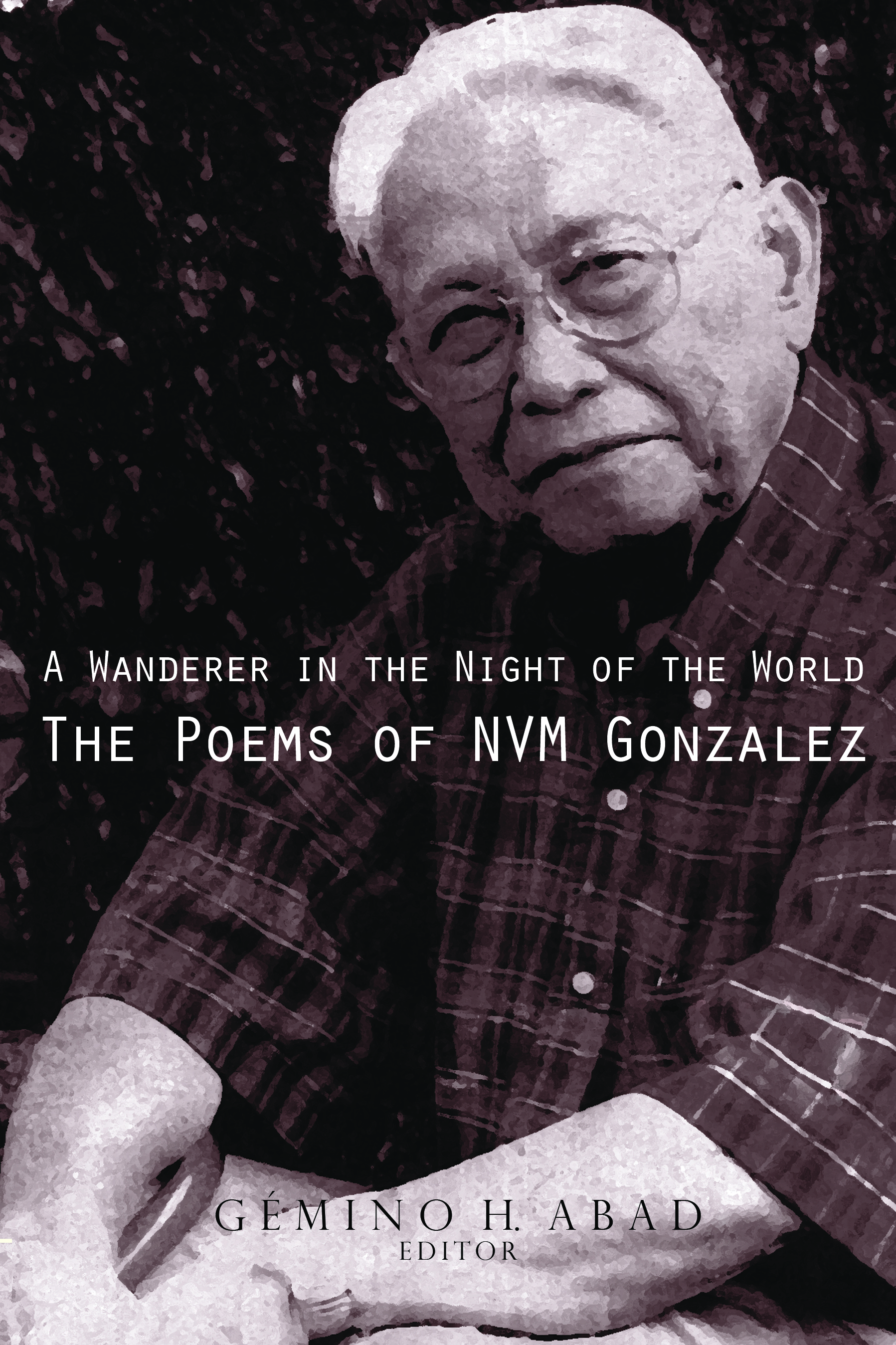
A Wanderer in the Night of the World The Poems of NVM Gonzales
NVM Gonzalez recalls 1934 in Calapan, Mindoro: “I was out of school, too strapped to afford university tuition … Was it in relief or from sheer optimism that I took to composing poems? Whatever the reason, no one could tell me what a poem could look like or how it should be …. one day, a ferry boat came with my copy of Poetry: A Magazine of Verse [January 1934]—perhaps the first to ever reach Calapan. In fact, there was no one with whom I could share my joy. I was nineteen and had actually sold my first poems. No one in town, for that matter, could honor Harriet Monroe’s check for six dollars …. Unearned self-confidence, illusory independence, and peace of mind perhaps. But the poems were there attesting to something at the very least. And I may have been unable to return since to that pristine condition.”
Thus did NVM’s writing life began: verses all wrought in the morning of our poetry from English, in quiet industry and humility sprung from the simplicity of country life and a closeness to the liberality of Nature which he often celebrates with such freshness and simplicity of expression as we find in “Behold the bountiful land” and “What moves the corn to summer fruition.” But already evident are the subtlety of perception about his subject or theme and the economy of the word-weave that we find later in his fiction; and there is too that sly humor in such verses as “Sandoval” and “Inday.” For NVM, the subject or theme is the most important in creative writing, for it is the fruit, as it were, of a process by which “you discover,” he says, “the archetypal” in the living moment that Mircea Eliade calls “sacred time”: that synchronic moment where “you begin right where you are. From that point, and inward, so to speak, things have happened. So you know what to look for, what to expect to find.”
About the book
Gémino H. Abad, University Professor emeritus of literature and creative writing at the University of the Philippines, is a poet, fictionist, and literary critic and historian, with various honors and awards. In 2009, he received Italy’s Premio Feronia (“Foreign author category”) for his poetry translated into Italian by Gëzim Hajdari and Amoà Fatuiva. Where No Words Break (2014) is his tenth poetry collection, and Imagination’s Way: Essays Critical and Personal (2010), his eighth collection of critical essays; he has two collections of short stories, Orion’s Belt (1996) and A Makeshift Sun (2001). He is known also for his three-volume historical anthology of Filipino poetry in English from 1905 to the 1990s—Man of Earth (co-ed., Edna Zapanta Manlapaz; 1989) and, as sole editor, A Native Clearing (1993), and A Habit of Shores (1999); and a six-volume historical anthology of Filipino short stories in English from 1956 to 2008—Upon Our Own Ground (2008); Underground Spirit (2010); and Hoard of Thunder (2012). He obtained his PhD in English at the University of Chicago in 1970, and continues to teach at UP where he has served as Secretary of the University, Vice-President for Academic Affairs, and Director of the UP Creative Writing Center (now an Institute).
